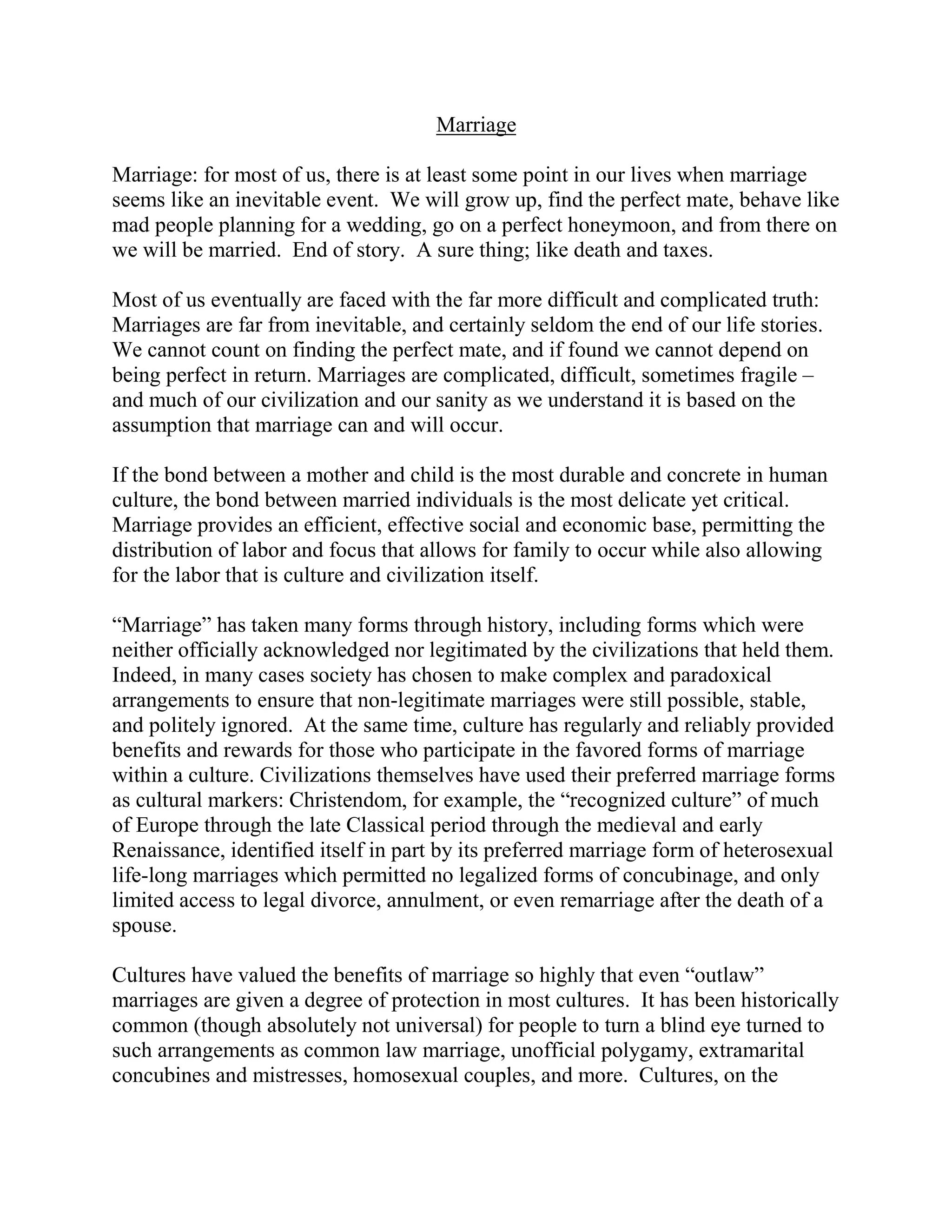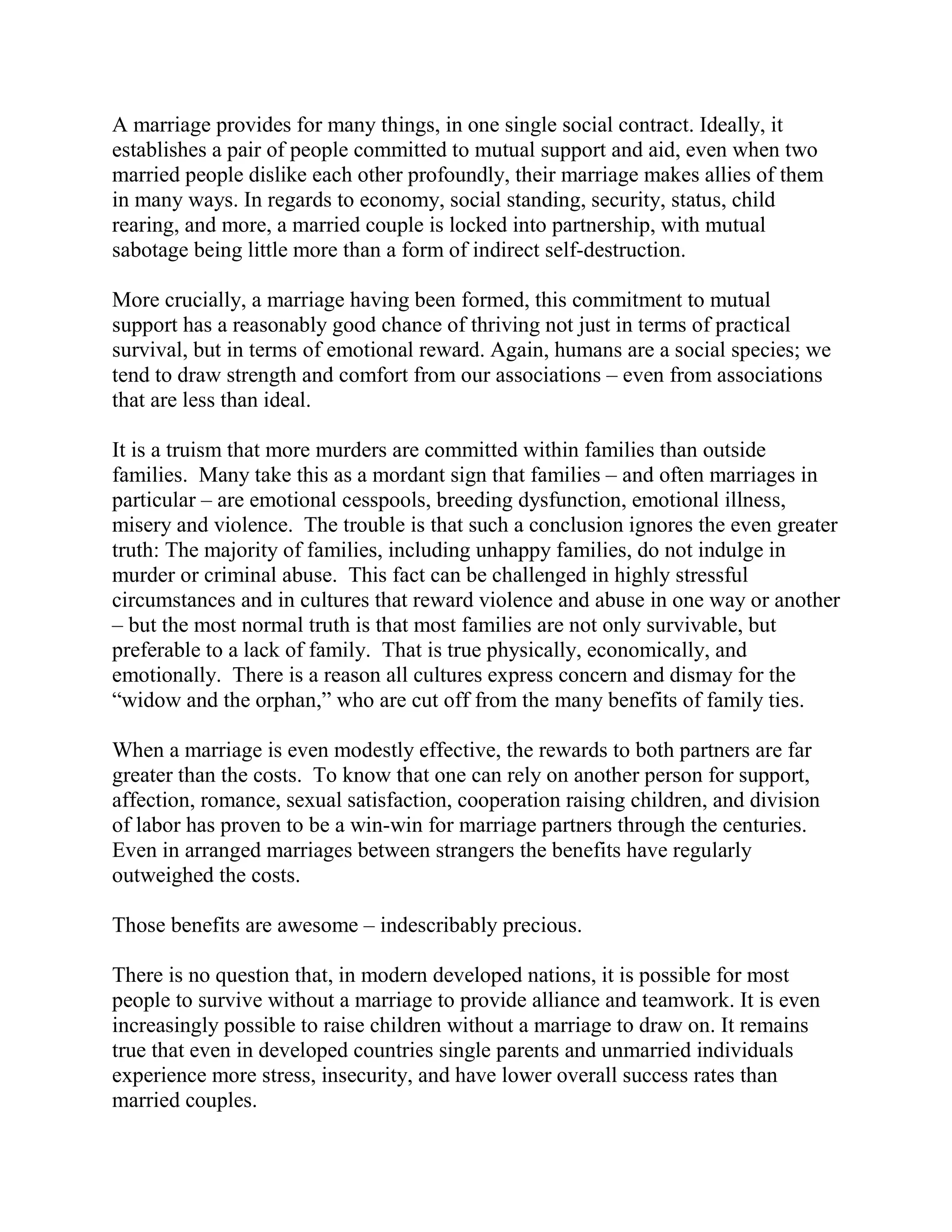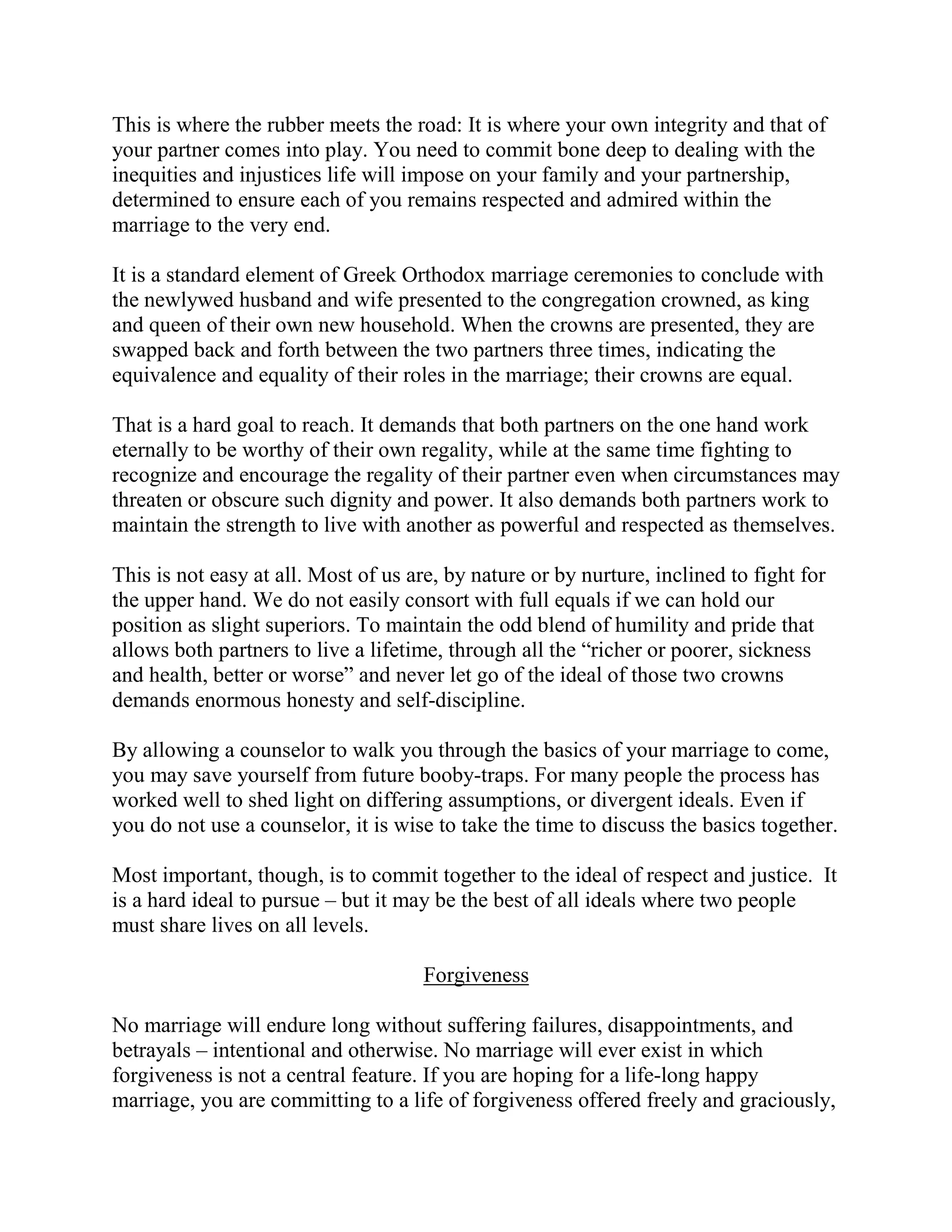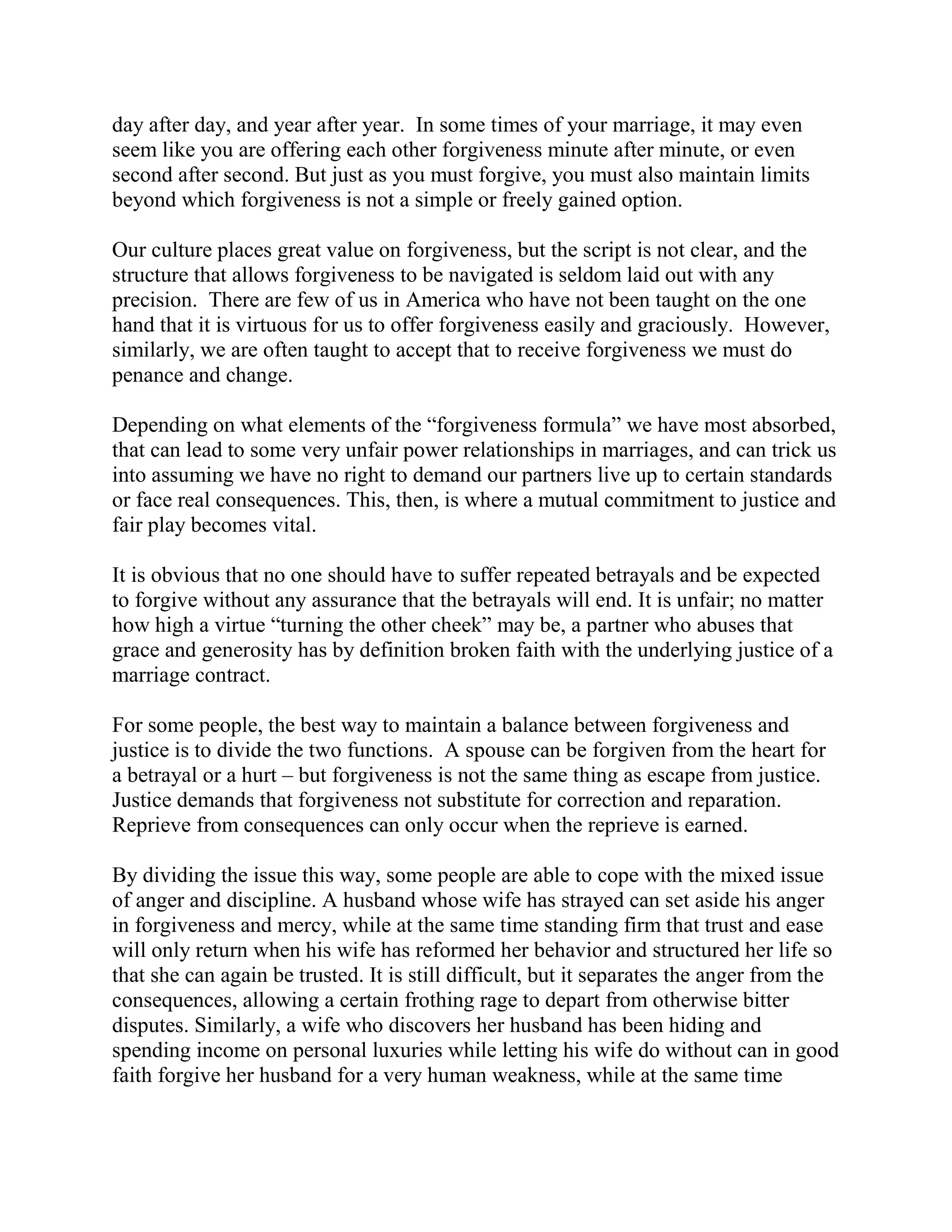The document discusses marriage from historical, cultural, and personal perspectives. It describes how marriage has been nearly universally valued across cultures as it provides benefits like economic support, childrearing assistance, and social bonds. However, it also notes marriages can be complex and fragile. The second half discusses how a good marriage between admired individuals, like the author's grandparents, can be profoundly rewarding and benefit not just the partners but entire families and communities.














